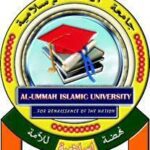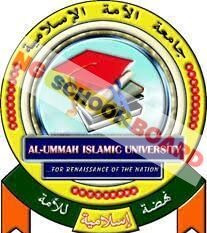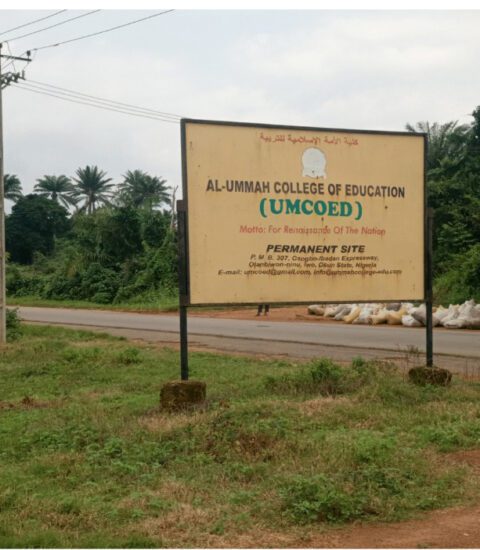Description
Al-Ummah College of Education (UMCOED) sets a benchmark for those interested in becoming teachers. The college aims to train skilled and ethically grounded educators. This blog post will cover everything from its comprehensive academic programs to how to get started and what campus life is like.
Overview/Background
Al-Ummah College of Education, initiated by Shaykh Daood Imran Malasan (Abu Sayfullah) and backed by Jama’atu Ta’awunil Muslimeen, came into existence in 2003. The college’s foundation reflects Shaykh Daood’s vision of creating a hub for nurturing competent, exemplary, and devout teachers in the educational sector. This idea became more concrete when Shaykh Daood introduced a diploma in Arabic program from Kano, specifically from Shaykh Dr. Ibrahim Institute of Arabic and Education, in 2010.
The college’s mission is to excel in developing professional, ethically sound, and practically skilled teachers. These teachers are envisioned as carriers of true pedagogical knowledge and contributors to job creation and national progress.
Its vision is ambitious and clear. Al-Ummah College of Education aims to become the premier institution in Africa, igniting the flame of knowledge across various fields—education, science, religion, and vocational training. The goal is to equip young and adult learners with the skills to make meaningful contributions to educational advancements, self-sufficiency, and poverty reduction.
At its core, Al-Ummah College of Education’s philosophy sees education as a pivotal force for societal change and national development. The college believes in the power of students to shape a nation’s future, with teachers playing a crucial role in molding these students. For a real national renaissance, the focus is on producing knowledgeable teachers who serve as role models.
The college’s objectives align with the broader national goals for teacher education as outlined in the National Policy on Education (NPE) and the National Teachers Education Policy (NTEP). These objectives include:
- Creating an ethical and moral educational environment consistently produces highly skilled and professional teachers for Nigeria and beyond.
- Integrating teaching professionalism into the community to safeguard the nation from intellectual decline.
- Graduating individuals who are well-rounded in their faith, patriotism, and self-discipline to contribute positively to the nation.
- Educating the younger generation in humanities, social sciences, pure sciences, and technology to boost human development.
- Emphasizing practical vocational education over theoretical knowledge for real-world self-empowerment and independence.
School Programs And Academics
UMCOED provides various programs across multiple disciplines, ensuring a broad-based education system. Some of the courses available include:
- Arabic Language
- Agricultural Education
- Biology
- Economics
- English Language
- French Language
- General Education
- History
- Integrated Science
- Islamic Religious Knowledge
- Mathematics
- Political Science
- Primary Education Studies
- Social Studies
- Yoruba Language.
Courses offered at Al-Ummah College of Education (UMCOED):
- Agricultural Education
- Biology
- Economics
- English Language
- French Language
- General Education
- History
- Integrated Science
- Islamic Religious Knowledge
- Mathematics
- Political Science
- Primary Education Studies
- Social Studies
- Yoruba Language.
School Fees
Students are encouraged to contact the school directly through their official contact details for the most accurate and up-to-date information on school fees, additional costs, and payment procedures.
School Admission Requirement
Prospective students aiming for a place at UMCOED must score at least 5 credits in their O’level results, which should include English and Mathematics. Moreover, passing the college’s screening exercise is crucial for getting admission into their desired courses.
Campus Life, Recognition, And Activities
Al-Ummah College of Education’s foundational philosophy and objectives suggest a vibrant educational community. The college’s commitment to producing well-rounded, ethically grounded, and professionally competent teachers hints at a campus life filled with opportunities for personal growth and community engagement.
Conclusion
Starting your academic path at Al-Ummah College of Education means joining a movement to revolutionize education. This college commits to shaping teachers who are not only experts in their field but also hold strong ethical values, impacting education nationally.
FAQs
What are the admission requirements for Al-Ummah College of Education?
Candidates need at least 5 credit passes in O’level results, including English and Mathematics, and must undergo a screening process.
What courses does Al-Ummah College of Education offer?
UMCOED offers courses across various disciplines, including Languages, Agricultural Education, Sciences, Social Studies, and Vocational Education.
Where is Al-Ummah College of Education located?
The college is located in Iwo, Osun State, Nigeria, on the Osogbo-Ibadan Expressway.
How can I contact Al-Ummah College of Education for more information?
You can contact them via phone at 08062384471, 08169496801, or 08060156359, or email at umcoed@gmail.com.
Does Al-Ummah College of Education offer post-graduate programs?
Prospective students should contact the college directly for the most accurate and current information on postgraduate programs.
Recommended Posts
Abraham Adesanya Polytechnic | Overview | Academic Programmes





